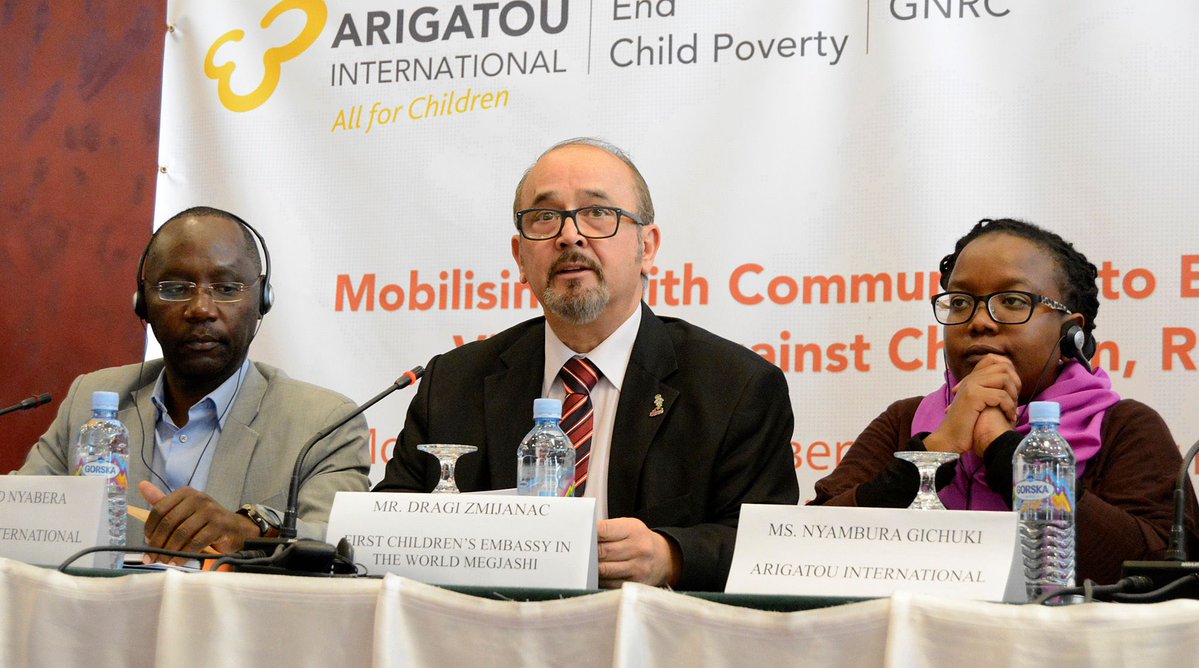
Arigatou International—Nairobi (AI—N) in partnership with the First Children’s Embassy in the World – MEGJASHI (FCEWM), organised a Balkans regional meeting in Skopje, Macedonia, on 26th February 2018 to 1st March 2018. The meeting was convened by Arigatou International Initiatives, the Global Network of Religions for Children (GNRC) and Interfaith Initiative to End Child Poverty (End Child Poverty).
The meeting brought together thirty five (35) GNRC members and partners from 9 countries; Bosnia and Herzegovina, Croatia, Germany, Romania, Macedonia, Moldova, Montenegro and Serbia; and Arigatou International staff from Kenya.
The aim of the regional meeting was to:
- Build momentum to implement targeted commitments arising from the GNRC 5th Forum.
- Develop a relevant community mobilisation and advocacy strategy to address child poverty and violence against children
- Strengthen the GNRC network and cooperation within the region
Key discussions on mobilising faith communities to end child poverty and violence against children and developing a community mobilisation and Advocacy Strategy were deliberated during the meeting. Discussions were also guided by the Panama Declaration on Ending Violence Against Children and the Interfaith Resource Guide to End Child Poverty, ‘Act. Inspire. Change’, with great reference to the Sustainable Development Goals (SDGs).
The barriers identified in addressing child poverty and violence against children included;
- Lack of or poor child protection policies
- Lack of implementation of laws and policies
- Lack of attention to child protection policies and programs by most states
The participants resolved to solving the problem by putting into action three main strategies. First, identifying the mistakes and problems; second, ensuring policies are put in place to solve the problems; and third, establish social changes. Faith communities were urged to come out and address social injustice by encouraging more interfaith action to end child poverty and violence.

